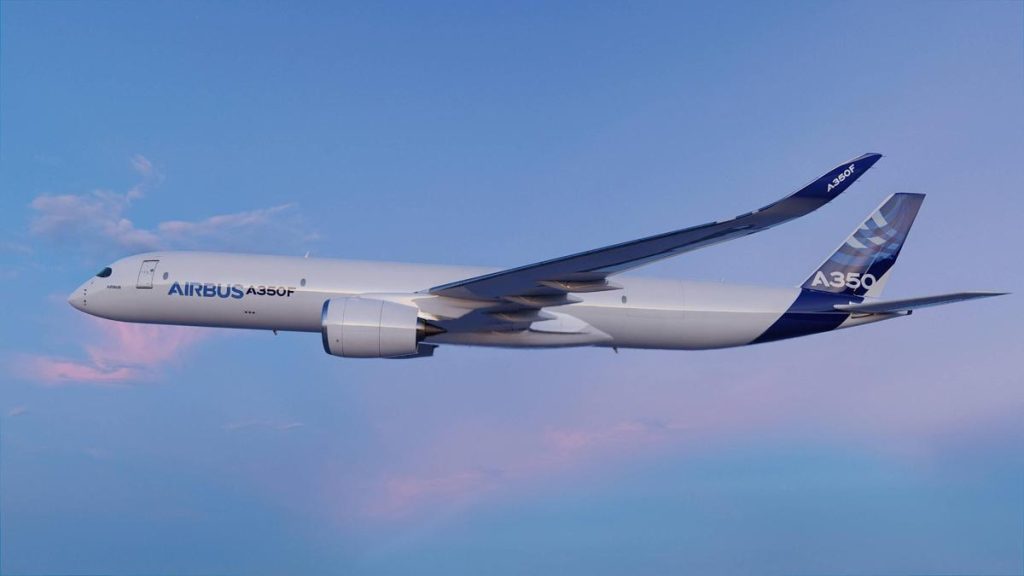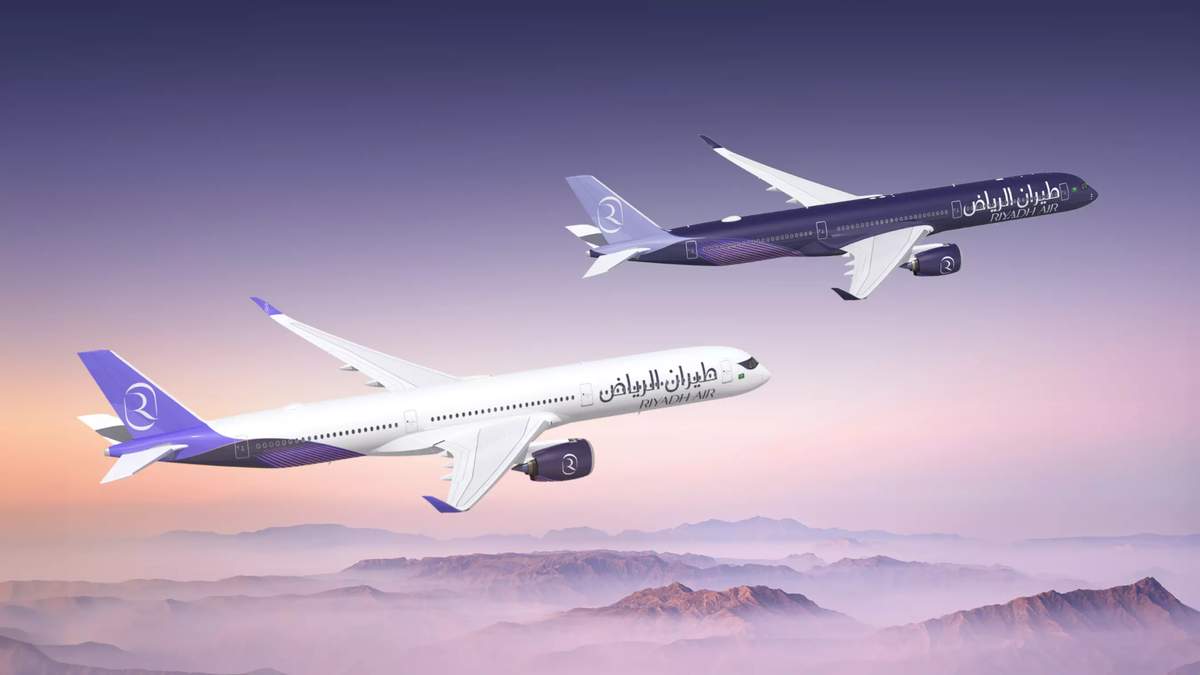Have you ever wondered how aircraft giants shape the skies we fly? Today, June 16, 2025, marks the exciting first day of the Paris Air Show 2025. Airbus and Bombardier have already made significant waves. These announcements feature remarkable new orders and ground-breaking speed records. Additionally, they promise a dynamic future for both passenger and freight travel.
Paris Air Show 2025 – Riyadh Air Orders Airbus A350-1000 Aircraft
In a major aviation news highlight today, Saudi Arabia’s Riyadh Air placed a firm order for 25 and potentially 50 Airbus A350-1000 aircraft. This order significantly advances the airline’s ambitious expansion plans announced at the Paris Air Show. (source).
Adam Boukadida, Chief Financial Officer of Riyadh Air, stated, “This order marks a significant step forward in building a world-class airline that reflects the ambitions of Vision 2030. The A350-1000 will bring outstanding efficiency and comfort to our fleet, supporting our sustainability goals and enabling Riyadh Air to offer a premium experience while connecting Saudi Arabia to the world.”
Benoît de Saint-Exupéry, Airbus EVP Sales of the Commercial Aircraft business, added, “We are proud to extend our strategic partnership with Riyadh Air. As the long-range leader, the A350-1000 will provide unrivalled efficiency, range and passenger comfort.”
With this substantial order, Riyadh Air isn’t just expanding—they might soon need their terminal at every major airport.
AviLease Expands with Airbus A350F and A320neo Orders
Saudi Arabian leasing firm AviLease also made aviation news today. The firm has committed to Airbus by ordering A350 freighters and additional A320neo family aircraft. (source).
The agreement includes an initial firm order for 10 A350F freighters and 30 A320neo aircraft, with options to increase to 22 freighters and 55 A320neos.

The A350F is Airbus’s latest freighter aircraft, offering exceptional cargo capacity and fuel efficiency. The A350F is specifically designed with advanced materials and aerodynamics. It delivers up to 20% less fuel burn compared to older-generation freighters, significantly reducing environmental impact and operational costs.
AviLease’s new cargo planes: because your packages deserve their first-class cabin, too.
Furthermore, the A320neo family’s proven fuel savings and flexibility reinforce AviLease’s leadership in the leasing market.
Bombardier Global 7500 Sets New Speed Record For The Paris Air Show 2025
Canada’s Bombardier proudly announced that its Global 7500 jet set a new speed record between Montréal and Paris, completing the 5-hour-30-minute flight to Paris-Le Bourget at over 1,000 km/h (source).
Canada’s Bombardier proudly announced that its Global 7500 jet set a new speed record between Montréal and Paris, completing the 5-hour-30-minute flight to Paris-Le Bourget. This performance not only showcases the jet’s capabilities but positions it as a leader in long-range business travel. The Global 7500’s speed and range continue to distinguish it from competitors such as the Gulfstream G700 and Dassault Falcon 8X. at over 1,000 km/h (source).
Éric Martel, President and CEO of Bombardier, stated, “The Global 7500 performs at the highest levels across the board, in real-world situations. Bombardier takes great pride in completing meaningful speed records, like this latest one, during regular day-to-day operations with passengers, baggage and cargo, setting it apart from peers.”
At these speeds, passengers might arrive before their coffee cools—a notable advancement for business travel.
Moreover, Bombardier’s ongoing innovation continues with the Global 8000, featured prominently by Fliegerfaust as potentially the fastest business jet ever built (read more). The new model underscores Bombardier’s commitment to pushing the limits of aviation speed and luxury standards.
Industry Trends at Paris Air Show 2025: Airbus Strengthens Market Dominance
Recent Airbus successes—such as the Riyadh Air and AviLease orders—reflect the aviation industry’s trends of prioritizing sustainability, operational efficiency, and passenger comfort.
Fliegerfaust’s previous coverage of JetBlue’s Airbus selection, along with reports that Airbus is set to secure a significant order from Poland for 40 A220 aircraft (option for up to a total of 80 A220), as detailed by Reuters, highlights how operational efficiency and sustainability strongly influence airline decisions. Such developments reaffirm Airbus’s market dominance, positioning the manufacturer as a clear frontrunner in commercial aviation (read more from Fliegerfaust here).
Airbus A220: Profitability through Efficiency
Airbus’s A220 continues its upward trajectory, appealing to airlines through flexible, high-density seating configurations. In May 2025, Fliegerfaust detailed Airbus’s introduction of a 160-seat layout A220-300, aimed at boosting airline profitability (explore further here).
With Airbus’s new seating layout, airlines will happily discover the profit in being slightly cozier.
Curious about the Airbus A220-500 stretch? Fliegerfaust breaks down what it would take to launch it—and why a new wing might be the missing piece
Aviation Sustainability: Airbus and Bombardier Lead the Charge
Aviation sustainability is increasingly important, with Airbus and Bombardier setting industry benchmarks. Airbus’s A350, for instance, achieves around 25% less fuel burn and CO₂ emissions compared to previous-generation aircraft (source). Bombardier’s Global 7500 was among the first business jets to publish a verified Environmental Product Declaration (EPD), clearly demonstrating its environmental performance throughout its lifecycle. These efforts highlight how aviation leaders actively reshape the industry’s ecological impact.
Meanwhile, competitors like Boeing and Gulfstream have also introduced more efficient models, but Airbus and Bombardier’s transparency and early adoption of sustainability disclosures give them a strategic communications edge.
Critical Perspective: Navigating Future Challenges
Despite the positive aviation news, challenges remain. Can Airbus maintain its competitive advantage in the commercial aircraft market against rivals like Boeing and emerging manufacturers from China? Similarly, can Bombardier sustain its leadership in business jets amid growing competition from Gulfstream, Dassault, Embraer, and Textron Aviation?
Ongoing geopolitical tensions, fluctuating fuel prices, and persistent supply chain disruptions continue to test the resilience of the aerospace sector. These macroeconomic pressures demand that manufacturers stay agile and forward-looking.
As aviation evolves, observers must ask: Are Airbus and Bombardier genuinely ready for future turbulence?
To sustain success, each of these industry leaders must proactively balance innovation, efficiency, and sustainability within their sectors, rather than merely reacting to market shifts. As enthusiasts and experts, we must continue to challenge and question; aviation’s future is about navigating both new heights and the uncertainties ahead.
What developments will define aviation’s next chapter? Share your thoughts in the comments!

